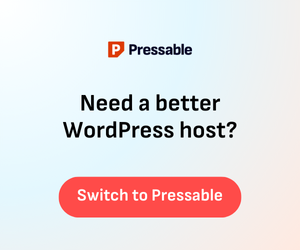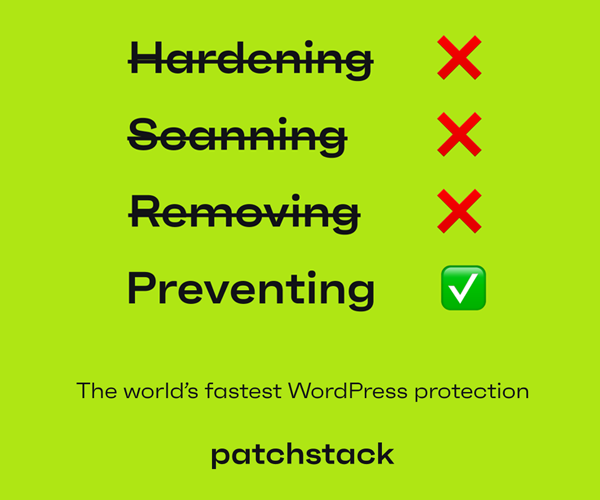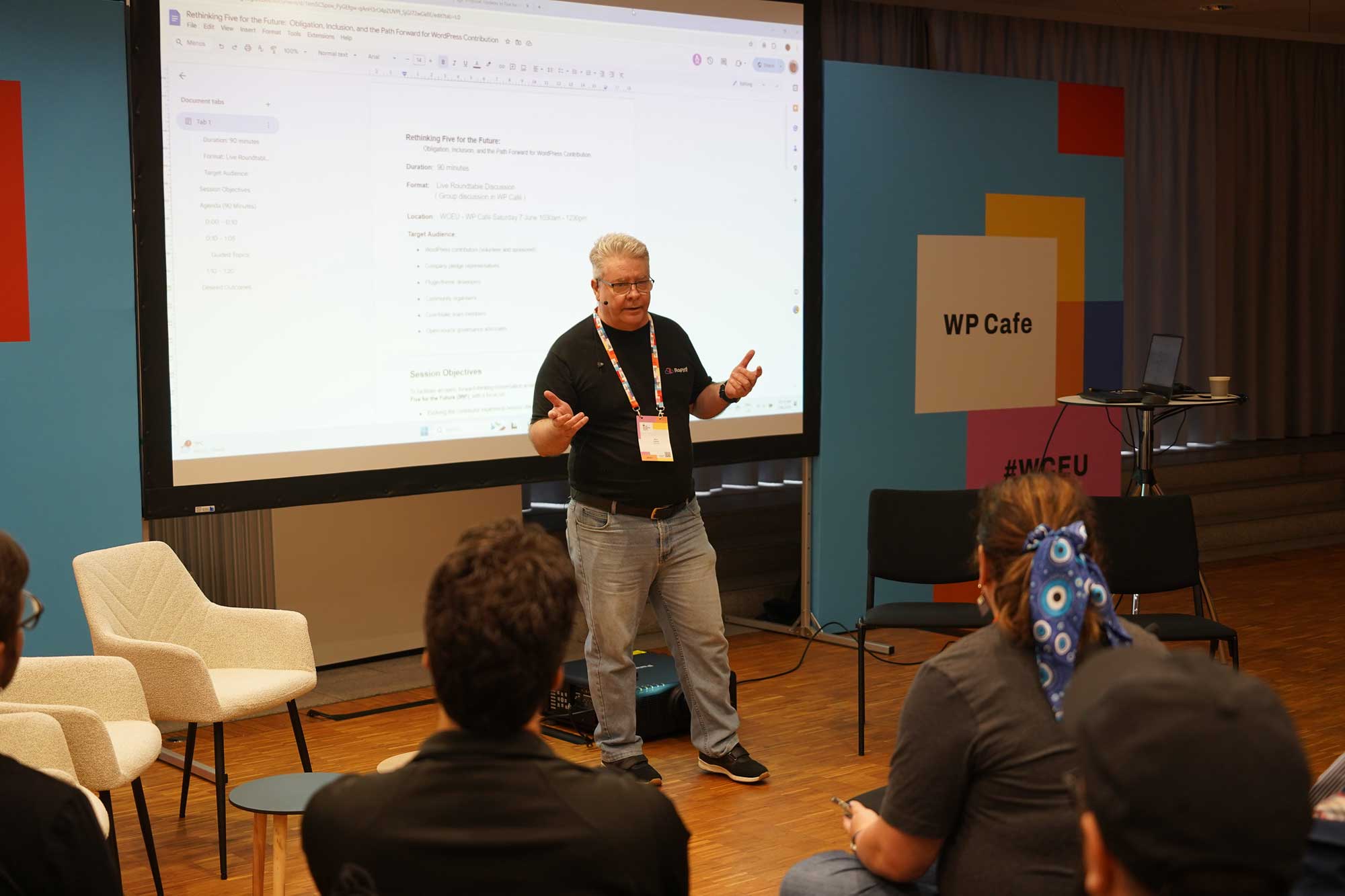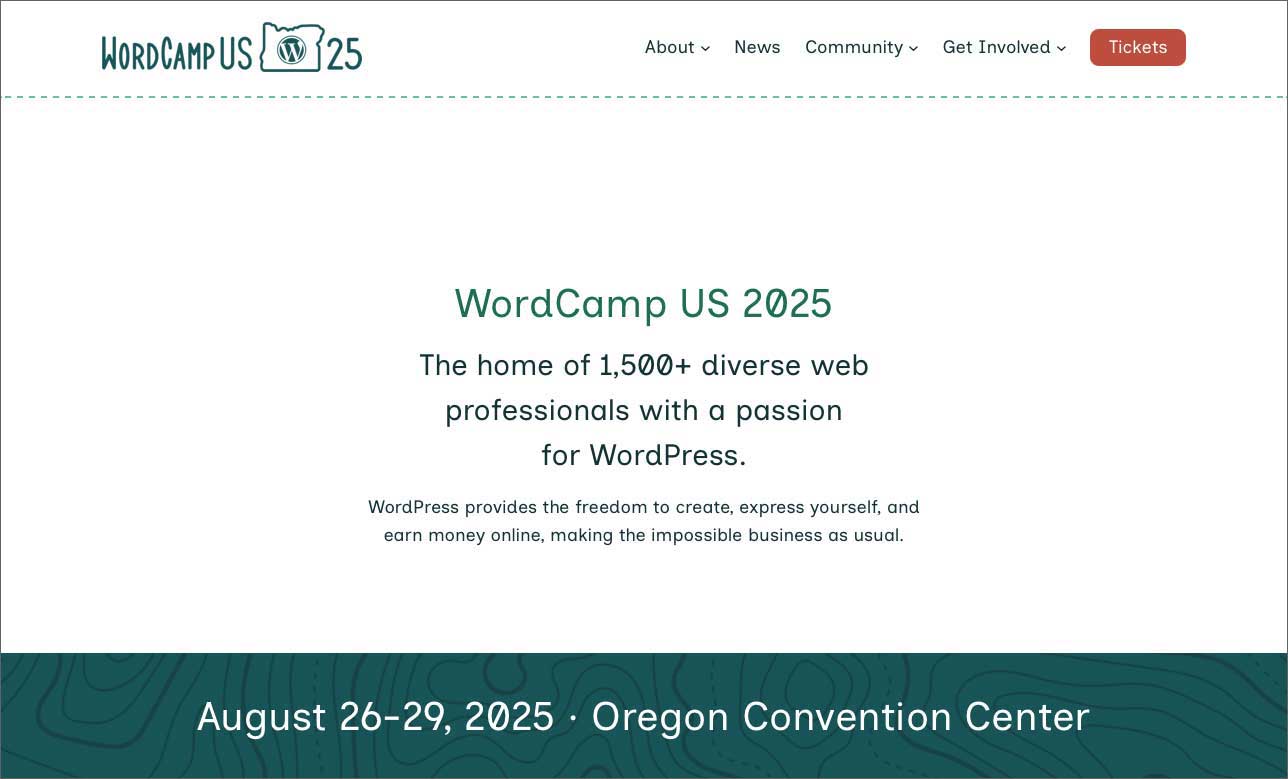Diversity has been a hot topic for WordCamp Europe. Last week, Sjoerd Blom, one of the event’s global leads, apologized for how he reacted to recent scrutiny of the diversity of the event’s speakers. He was responding to Michelle Frechette, StellarWP’s Director of Community Engagement, who questioned the apparent lack of diversity in the first five rounds of speaker announcements.
The exchange blew up WordPress Twitter, sparking discussion about diversity at WordCamps and how WCEU could screen up again this year after being called out last year for the lack of diversity on its organizing team.
We spoke to Evangelia Pappa, one of WordCamp Europe’s three global leads, to find out what’s going on behind the scenes – and what organizers have been doing to increase diversity at the flagship event. Turns out, they’ve been doing a lot.
Q: Michelle Frechette recently questioned the apparent lack of diversity in this year’s speaker line-up, prompting Sjoerd Blom, a global lead, to reply that Frechette was “being prejudiced”. He publicly apologized, but only after WordCamp Europe received overwhelming negative criticism. Has the organizing team been in damage control?
Evangelia Pappa: To be honest, “prejudiced” sounds like a very strong word. However, since we are not native English speakers, it might be translated a bit differently. Sjoerd is a very nice person. I have been working with him for the past 2 years as an organizer, and he apologized publicly for this word. “Prejudiced” for us meant that we have been judged before all the speakers were announced.
We have this kind of drama on social media because nobody really communicates with the WordCamp Europe organizing team. We have email, we have social media where somebody can send us a direct message and the organizing team will reply. We wish people would reach out to us more. In the past few years, not only concerning diversity but for other things, people prefer to use Twitter to call out the organizing team. It has become a little bit common, to be honest.
And this year, for example, with Michelle, who is someone I really respect and like and we have had personal conversations, it started before we announced all the speakers. So it was, I think the first five teams. We released the speaker announcements like an algorithm – first in, first out, because the organizing team has so much work. I understand people who handle marketing might judge me for this. But when there is too little time, we are very close to the event, we have a lot of speakers, because as you know on the schedule this year, we have also a third track. So we had to move quickly to get the announcements made.
Q: Do you think it’s becoming more of a problem that people are calling out issues publicly on platforms like Twitter without actually having a conversation privately first?
EP: I know that Sjoerd voiced our disagreement with what Michelle wrote, but I believe he voiced the whole organizing team. We do feel some frustration in several aspects. We would have so much appreciated it if people had reached out to us first, to ask for an explanation or to offer help. The community shouldn’t be about being called out. People could say, for example, “Oh, I see that you have posted five teams of speakers only with men or with very few women. What is wrong? Can I help you?” That would be a more positive approach, a more community-like approach.
I read comments from people calling us idiots, misogynists, racists, and that we cannot wash the blood off our hands. And several other things on Twitter that started after Michelle’s thread. I don’t believe it’s her fault. She is very kind and she doesn’t use bad words, but it started with that thread about diversity and it is happening every year. And that’s not a nice thing for the community.
When people are not supportive and respectful, it can create other problems. We are all volunteers. I’m not being paid to harm my mental health. I want my mental sanity. I like it. I mean, we’re asking for help, for support. The negative comments I see on social media are, I believe, dangerous for the community. They can make people hesitate to volunteer as organizers for events or even discourage hard-working volunteers from participating in the future. What is the point of contributing and committing when somebody calls you these names?
Q: There have been 12 rounds of speaker announcements now. Visibly, the gender split is 19 females and 41 males. I could be mistaken, there could be nonbinary and trans people in the mix too. But as far as visible gender representation goes, that’s 32% females and 68% males. Can you share how the content team assesses speaker applications, and how is gender diversity taken into consideration?
EP. We are soon going to publish a description of the process we used to select speakers. Along with that, we will describe the processes used to select the organizing team, volunteers, and media partners. This is for transparency, because we want to show everyone in the community how things are being done. People have questions. Some people might feel, you know, “I wasn’t selected for something. Why was I not selected?” I work in Human Resources, so I understand it’s difficult when an application is rejected. We don’t reject the person behind the application, we reject the application. It doesn’t mean you failed, it means you need to take some more time or that somebody else had a bigger skill set or more experience than you. We want to show people that they don’t need to feel anxiety or that they should stop applying. Or maybe they think their topics are not interesting. This is not the case. Sometimes we get so many applications and it’s very difficult to choose. We just want them to know that we value their time because they did make an effort and we want them to apply again.
One additional thing we did this year was to start the Speaker Support Program, where we asked companies in the WordPress Community to provide financial support to help persons in underrepresented groups come to WordCamp Europe as speakers. Only one company volunteered to participate. It was a big name company in the WordPress world. We could have published their name and let them benefit from the free advertising. But we decided not to do it because we didn’t want people to think we were being too supportive of one single company and advertising more than our sponsors.
Also, we get a lot of requests from speakers to be paid. This is something we cannot accommodate, although we understand it is difficult for some people to fund a trip to flagship events and pay for flights and accommodation.
I also believe that we are striving for parity and that we do our best to provide the best possible diversity mix. It is an ongoing challenge. Only 20% of tech workers in Europe are women. So getting to 50-50 or, I don’t know, 70-30, diversity for women is going to be a struggle. This is not just in Europe. It is a challenge everywhere around the world.
And we really try. But if people don’t apply, even if you reach out and invite them to speak, this is a problem. And each organizing team tries to find new speakers to avoid repetition. It is a very multi-layered issue. It’s a problem not only for flagship events, but also for contributions to WordPress. It’s a problem that should be discussed in contributor channels on Slack for Make WordPress and WordPress.org. There should be a bigger effort to address diversity. It’s not enough to simply call out organizers from every WordCamp Europe or every WordCamp US or every WordCamp Asia when they announce the speakers, because this is work that has to be done far earlier.
Q: How many speaker applications were there this year?
EP: There were 270 applications and we selected 100 for the three tracks, including the panels.
Q. Did the Content Team proactively reach out to underrepresented communities, organizations, and individuals to encourage them to submit talk proposals?
A. Yes, they did. They used social media – not only posting on our official channels, but also going through groups that have to do with underrepresented teams to ask people to apply.
Every year the Content team decides on the big topics for the two days of WordCamp Europe. We discuss these topics for other teams too, like the Community team, because we have WP Cafe, or this year WP Connect, as we named it, which also has some talks. We have the workshops, we have the tracks. So we need to have input on the content from several teams, not only the team that is handling the speaker selection.
After receiving applications, we started with blind voting so that we could ensure good content for the schedule, and then we opened voting for a second round to select further applications that were the right fit for the schedule. We decided last year to use blind voting this year because it is considered in HR the best way to have no bias.
When we finished with the selection process, we still had big gaps in diversity. That’s another reason we introduced a 3rd track this year. This increased the costs of the event, but we wanted to do our best to improve the representation. We have invited contributors from underrepresented groups to talk and set an example for people to get involved. We have a talk and a panel discussion about diversity. And we will have discussions about diversity at the Community table during Contributor Day, if the attendees are interested in the topic.
Q: You mentioned difficulties communicating with native English speakers. Can you expand on that with some examples?
EP: I want to comment on something that I read about the past few days. Somebody on Twitter said that using the word blind is insulting to blind people. I’m not quite sure if I should say “visually impaired” because in Greece, my country, the correct term is “blind”. If we don’t say blind, then that might sound insulting here because it seems that you do not understand the issue the person is facing and you do not accept it. The same with deaf people. We do not say people have impaired hearing. We say deaf people, otherwise it can be considered insulting or degrading.
And there is also a language gap between us here in Europe. It’s not all the same culture across Europe. I mean, we have around 44 countries in Europe. We don’t all speak the same language. We don’t have the same religion. Sometimes we have a lot of similarities, but other times it’s very difficult to communicate with each other. We have picked English as the common language for WordCamp Europe because it’s the most common language all over the world. But that doesn’t mean we can communicate perfectly fine because most of us are not from the UK. There are several times in my job, and also for WordCamp Europe, that I have to use Google Translate.
The whole WordCamp Europe event is already diverse. Even if it was held only by Europeans, for Europeans, it would be diverse because it’s people from 44 different countries. Men and women, different religions, different languages, different cultures, different countries.
Q: Last year, WordCamp Europe was criticized for the lack of diversity in its organizing team. Organizers published a post acknowledging the criticism, which included the following line in the opening paragraph: “That’s fair: when you look at our team page, it doesn’t visibly reflect the diversity of our global community, and it is difficult to readily see who in this group of people are underrepresented in their communities.” Should the WordCamp Europe organizing team and speaker line-up reflect the diversity of the global community? Or the diversity of Europe?
EP: I’m not quite sure if it is possible to reflect the global community. WordCamp US cannot reflect the global community – it is a WordCamp focused on the US. WordCamp Asia cannot reflect the global community – it is a WordCamp focused on Asia. I mean, the name says it all. I believe they are flagship events and the purpose of these events is to bring the local communities together from a specific territory. They are not global WordPress events although they bring together people from all over the world. They are not global, they are regional. This is the scope. That’s how they were designed.
So I can’t go to WordCamp Asia and say, “Oh, you don’t have many white people like me from Europe. You don’t have Caucasian women.” Is this right? No, it’s not because it is WordCamp Asia. This is not correct. I cannot call out WordCamp Asia for not having women like me over there.
But the flagships are not global events, they are events to help the local communities to get to know each other because not everyone has stability. The USA is one country. Europe is not one country. The European Union is not a country. This is really important to understand, and not just for diversity. There are big issues in Europe. We have a war in Ukraine, a war right outside of our homes that might expand. It is affecting us in many ways – politically, economically, and demographically with the mass displacement of people from Ukraine. This is a huge challenge in our lifetime. It affects the whole of Europe, not only financially, but also mentally. We had organizers from Ukraine – did someone ask them how they’re doing, how they’re feeling, how they’re coping? We also had organizers from Russia. We have contributors in both countries.
Q: Francesca Marano, who’s on the WordCamp Europe content team, posed this question on Twitter in response to Michelle’s tweet about diversity: “Should WCEU advocate for diversity that benefits first and foremost folx from this continent? I already know that it will result in a very white lineup, but maybe it might help folx from ethnic or language minorities to be represented?” What do you think?
EP: As I mentioned earlier, Europe is already very diverse culturally and ethnically. We speak many languages and have different cultures religions. Racial diversity in Europe is very different from other parts of the world. Only about 2% of the European population are people of African descent. So having a diverse lineup in Europe will look different from a diverse lineup in the US or Asia. As a flagship event in Europe, we should continue to strive for diverse lineups that reflect the many dimensions of European culture. At the same time, we must encourage participation and provide opportunities for people from other parts of the world, especially areas that are underrepresented in Europe, like the Middle East and Africa.
Q: Do you have any final thoughts you would like to share?
EP: Yes. Just like this interview has focused primarily on the controversy about diversity, our team has had to devote much time and energy to dealing with the issue. Some of our volunteers have reported increased stress and other mental health issues as a result of incidents like the one on Twitter. Michelle raised a legitimate question, but what came afterward was not kind.
I think the community should start a discussion about mental health because it’s not the first time this has happened. I don’t really care if somebody says bad things about me but that doesn’t mean it doesn’t affect anyone else.
This is a discussion the community should have. Our base of committed volunteers is a valuable part of the WordPress ecosystem. They make up every part of our community, and because we are a community we have the space where these issues can have a voice and be heard!







